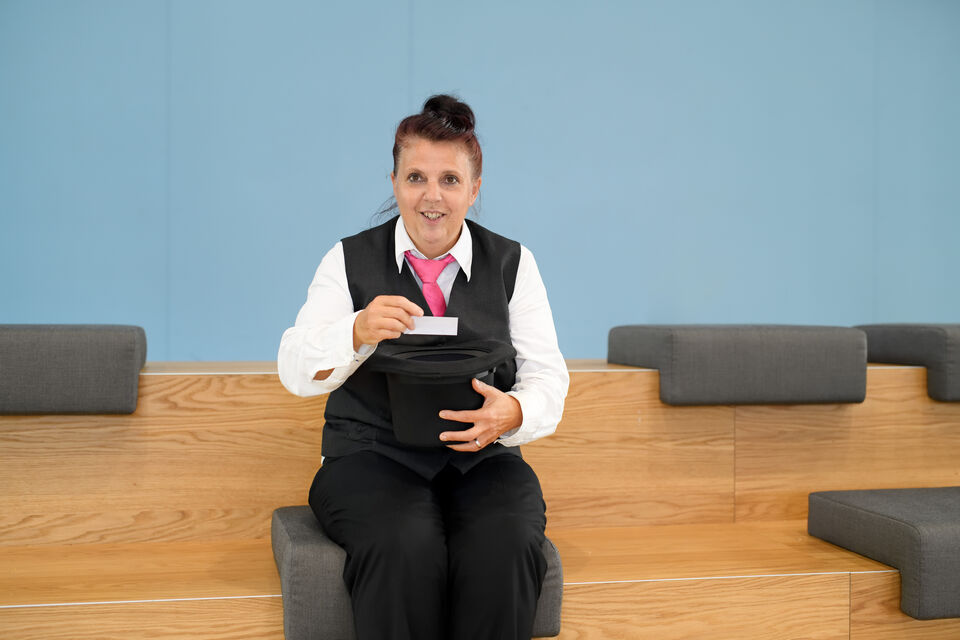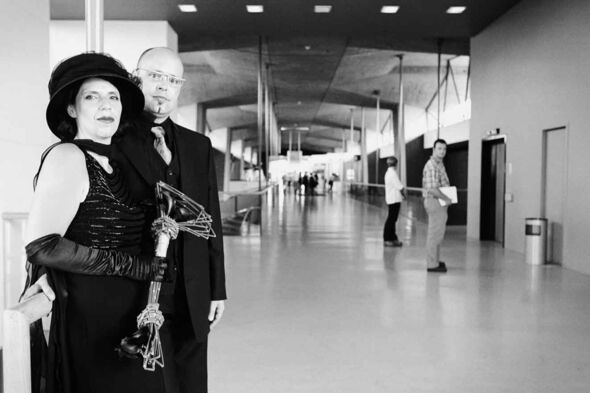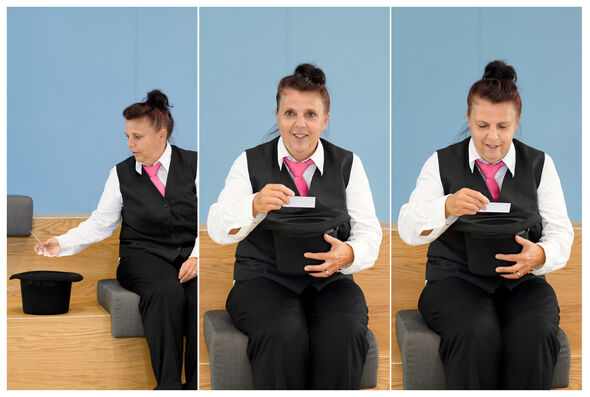Anneke van Rijswijk in the Hot Seat
They are not the easiest questions, the ones students and employees can pull out of our top hat for Cursor's Hot Seat. But they are questions that can give rise to a good, frank interview. As it is with Anneke van Rijswijk (59), who has played a role in TU/e's catering and the university generally these past 32 years, and who knows the Auditorium's occupants inside out. And they her.
Whenever you walk through the Auditorium about level with the Senate Room, there is a strong chance you will run into Anneke. And it's very likely she will strike up a conversation with you, regardless of whether you are young or old or where you come from. For the few who do not know her, Anneke is the work floor supervisor for banqueting. “With my colleagues, I organize the catering for the receptions and social gatherings ,” she explains with a laugh.
Her introduction to TU/e came in 1986, as a member of the canteen staff. She expected to find herself in this institute among 'an anonymous crowd wearing beards and glasses'. Nothing was further from the truth. She now has a great store of memories to recall - of her countless contact moments with employees and students, of the wedding photos she had made here, and not forgetting the Auditorium fire of 1994, which she was the first person to discover. We get to know the cheerful Anneke better with the help of five questions.
What is your worst vice or habit?
“That I don't finish my sentences. Both in conversation and when I'm writing, say, messages on Facebook. My husband and my friends know I do this and usually grasp my meaning anyway, but when I'm with others I need to be more alert. And I do have a tendency to skip from one subject to another. A friend of mine sometimes remarks, ‘Anneke doesn't tell it from A to B, she goes from A to Z via C and then back to A’.
For the rest, I worry a lot. My mind is never quiet. I worry about work and home, and also about the changing world. Some people are so intolerant, are hateful even. An example: people took down the posters of my missing cat because they found them an eyesore. And then there were the reactions to those Armenian children who now, finally, are being allowed to stay in the Netherlands. Think of them, instead of accusing each other of being right- or left-wing.
I am sometimes told I'm too nice, but I certainly wouldn't call that a vice. You can never be too nice.”
Who/what is your greatest enemy?
“I don't have any enemies, but I find it difficult to bear when people are unjust or short-sighted. Or hypocritical. I spent most of my youth in a boarding school and with a foster family. My mother died when I was 18 months old and soon after that my father lost his parental rights. When I turned 21, I was allowed to see my social services report. I read that two psychologists had articulated exactly how I felt at the time. But they did nothing with that knowledge. That can upset me sometimes. It feels unjust and I feel misunderstood. I also find it unpleasant when people have prejudices, for example about foreigners. It makes me think, ‘just you come along some time to TU/e, then you'll see how people from all sorts of countries can get along well’.”
Imagine, you have to emigrate. Which country would you go to?
“To Ireland. Or Sweden. Or New Zealand. As long as it's a broad-minded country where you can say what you want. Indonesia is perhaps an obvious choice, because my mother was born there, but other than that I don't feel a connection. I'm not really a traveler, I rather like staying put. But that is partly due to my youth, I imagine. The insecurity of having to move to another place and quickly feeling homesick. My husband Jos has travelled a great deal and from him I've learned that it can broaden your perspective.”
What have you achieved that you are really proud of?
“I'm proud of everything in my life as it is now. My background didn't pull me into an abyss, as happened to one of my sisters. She became heavily dependent on drugs and died at a young age. I am optimistic and cheerful and have always worked hard to get where I am today. I am proud of my husband and of our circle of friends with such varied people. And of the fact that I am keen to carry on learning and there's nothing I feel too old for. It's wonderful to be around students. I am really proud of my eldest sister, who managed to keep six children together in the weekends and vacations and who took care of us all.”
What is the greatest difference between you and your parents?
“That's a difficult question for me because I never knew them well. My sister always says that I'm just like our mother. I believe that my desire to fight for something comes from her. My father I have seen maybe five times in my life. With hindsight, I do understand that things were difficult for him, and he was unlucky that he had fewer people around him who he could turn to. From my foster parents I learned my social skills. They were decent people, more conventional than I am. I had a pretty good bond with my foster mother. I am more independent than she was back then, less dependent.”




Discussion